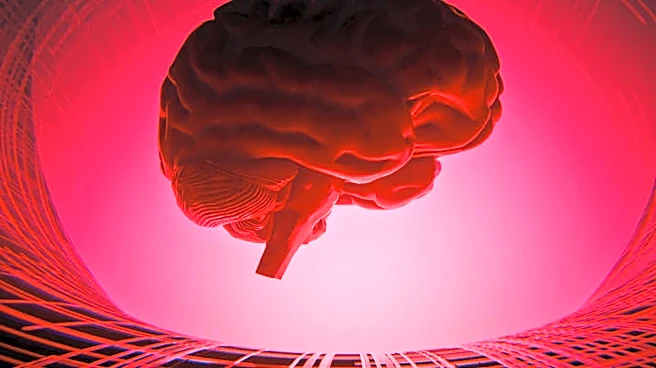What's Happening?
A study involving over 50,000 brain scans has revealed that standard MRIs can indicate how quickly a person's brain is aging. Researchers have identified structural features, such as cortical thickness, that can be used to calculate a 'Pace of Aging'
score. This score predicts future risks of cognitive decline, disease, and even death. The study, published in Nature Aging, aims to create reliable measures of biological aging, which could help identify individuals at high risk for age-related illnesses early in life. The research was led by Ethan Whitman of Duke University, using data from the Dunedin Study and validated with scans from the UK Biobank and the Alzheimer's Disease Neuroimaging Initiative.
Why It's Important?
The development of a reliable 'Pace of Aging' score could significantly impact healthcare by providing early warnings for cognitive decline and other age-related diseases. This tool could enable earlier interventions, potentially slowing the aging process and improving quality of life. The study's findings could also influence public health policies and resource allocation for aging populations. However, the tool is still in the research phase and requires further testing across diverse populations before clinical application.
What's Next?
The research team plans to test the algorithm in more diverse populations and harmonize data from different MRI scanners. They are also exploring whether conditions like schizophrenia or sleep disorders are linked to accelerated brain aging. These steps are crucial for transitioning the tool from research to clinical settings, where it could be used to assess and manage age-related health risks more effectively.
















